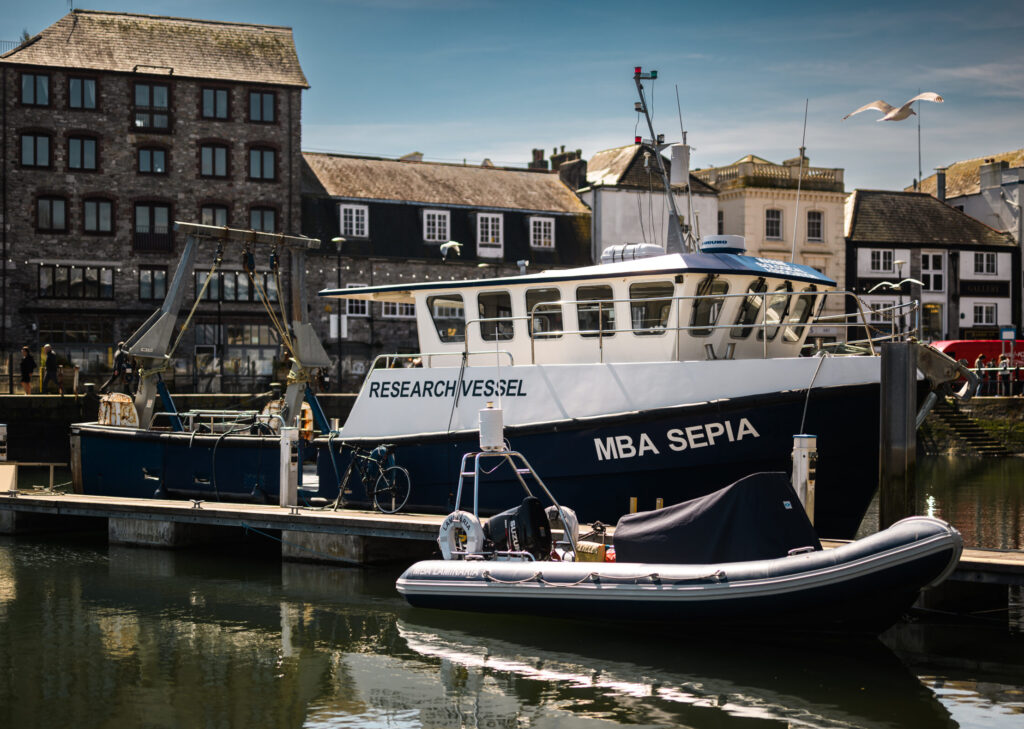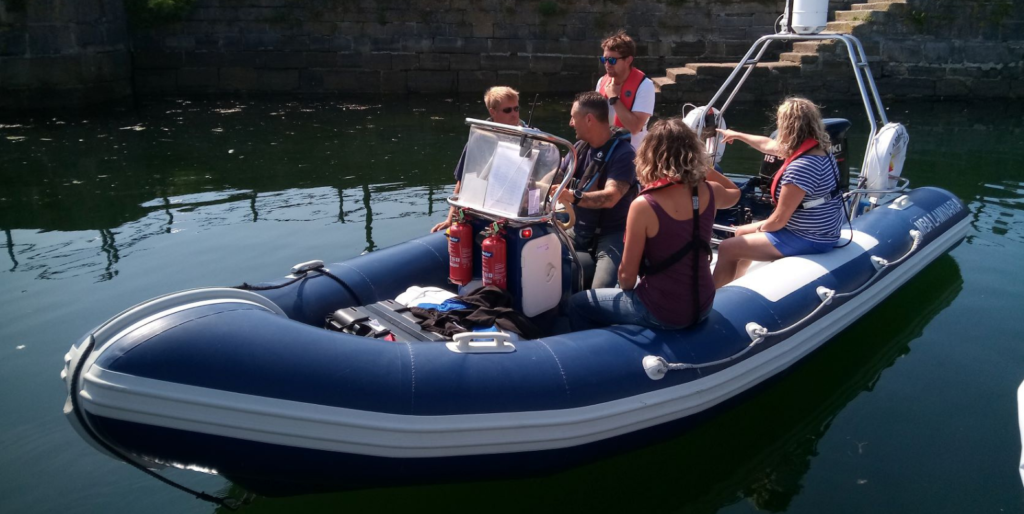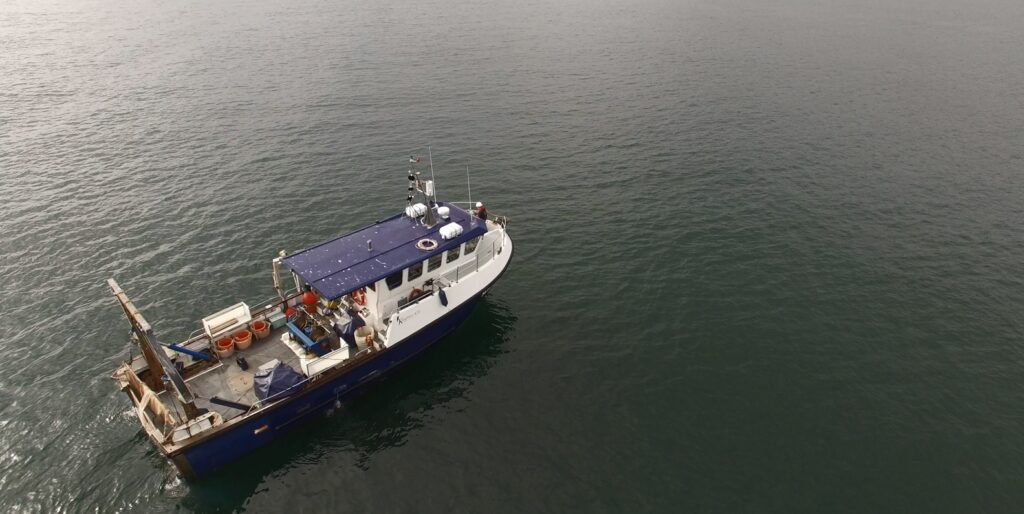Research Vessels
The Marine Biological Association has operated research vessels since 1895. Our vessels have been integral to supporting our science at sea, in particular the long-term investigations carried out in the Western English Channel.
The MBA research vessels are available for charter and can support a range of teaching and research activities. We offer bespoke packages for commercial and academic customers, for further information please contact the Research Vessel Team vessels@mba.ac.uk
RV MBA Sepia
A custom built 15.45 m Category 2 Coded Workboat, is a versatile research platform for exploring the river, estuarine and coastal environments, up to 60 miles off shore.
Technical specifications:
- Maritime and Coastguard Agency (MCA) Category 2 workboat, able to operate up to 60 miles from a safe haven
- Length: 15.45 m
- Draft: 1.4 m
- Beam: 5 m
- Gross tonnage: 34.2
- Accommodating up to 12 passengers
- Service speed: 9 knots
MBA Laminaria
Laminaria is a 5.8 m rigid inflatable boat (RIB) Category 4coded workboat. Its deep ‘V’ hull design provides a stable work platform for inshore surveys and is used as a rapid response craft, supporting research activities of our larger vessel MBA Sepia.
Technical specifications:
- Maritime and Coastguard Agency (MCA) Category 4 workboat, able to operate up to 20 miles from a safe haven in favourable weather and daylight
- Length: 5.8 m
- Draft: 0.8 m
- Beam: 2.2 m
- Carries up to 6 persons
- 115 hp Suzuki outboard engine.
Long-term monitoring in the Western English Channel
Since the late 19th century, we have undertaken long-term research in the Western English Channel recording natural changes in the physical marine environment, as well as abundance, distributions and population biology of marine organisms. This has resulted in important discoveries and links between climate and biological changes in the sea and has laid the foundations for many subsequent international studies.
The Research Vessels team continue to monitor MBA’s long-term stations off the coast of Plymouth and sampling focuses on inshore demersal fish communities, fish eggs and larvae and zooplankton. It is a unique monitoring programme with highly temporal sampling over a fine spatial scale. We have some of the earliest fisheries independent surveys in European waters.
Our data contributes to the Marine Environmental Data and Information Network (MEDIN), the British Oceanographic Data Centre (BODC) and the Western Channel Observatory (WCO) a partnership between the Marine Biological Association and Plymouth Marine Laboratory.
Our Team
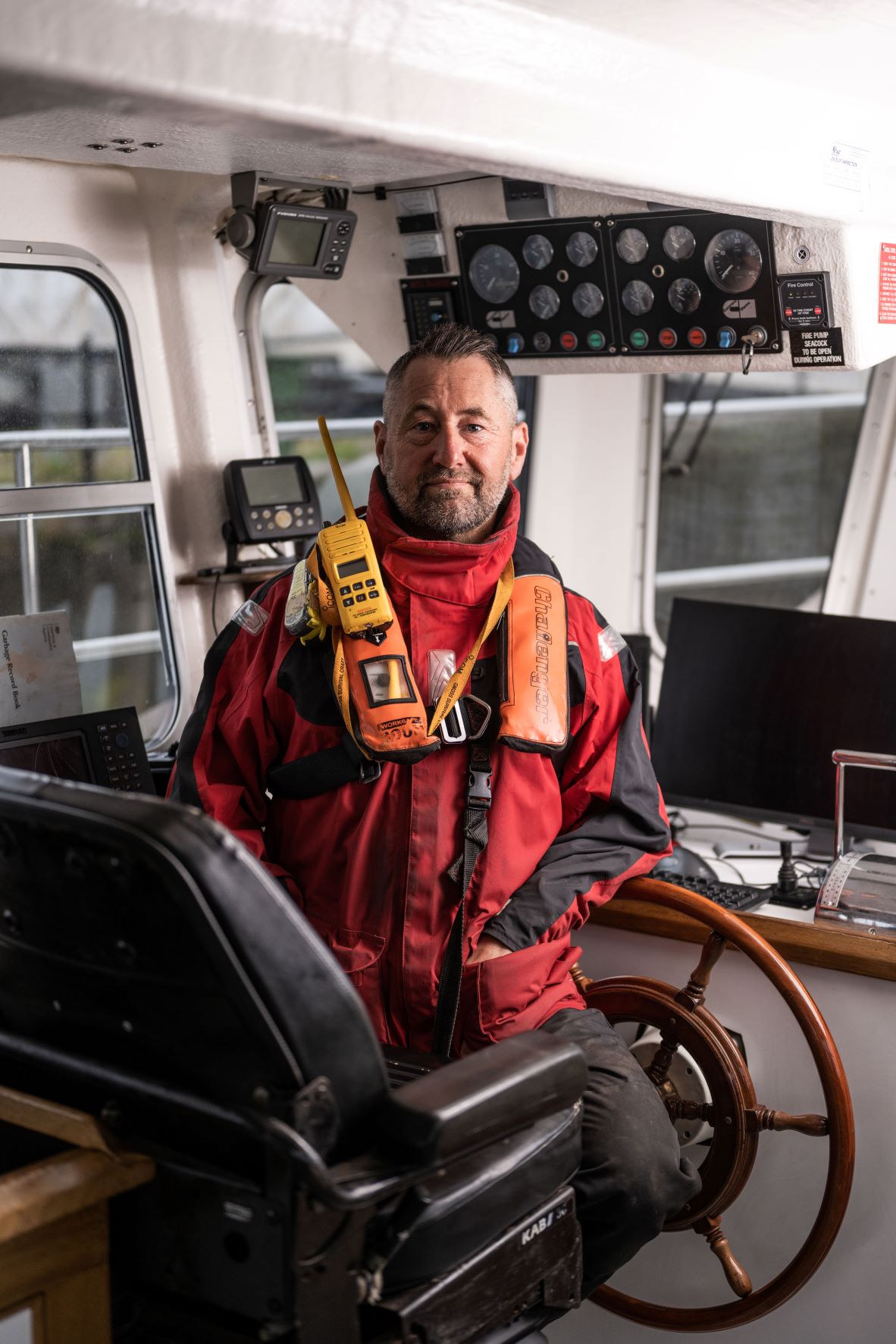
Sean McTierney
Skipper and Vessel Manager
Sean McTierney
Skipper and Vessel Manager

seamct@mba.ac.uk
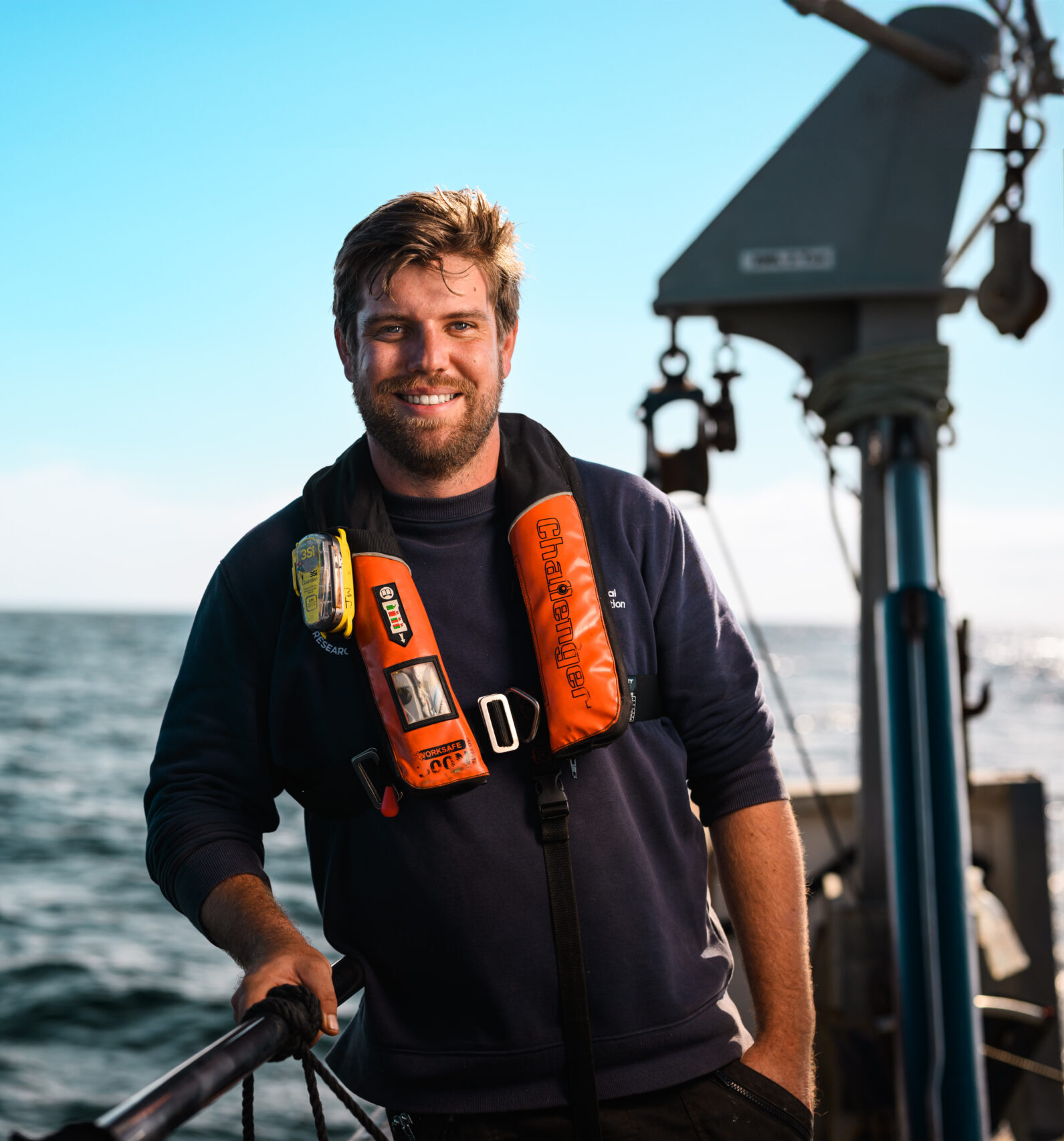
James Whicheloe
Research Vessel Crew Member
James Whicheloe
Research Vessel Crew Member

jamwhi@mba.ac.uk
Latest News
Can we help?
If you have an enquiry about any aspect of the Marine Biological Association, please drop us a line below.
We look forward to hearing from you.
